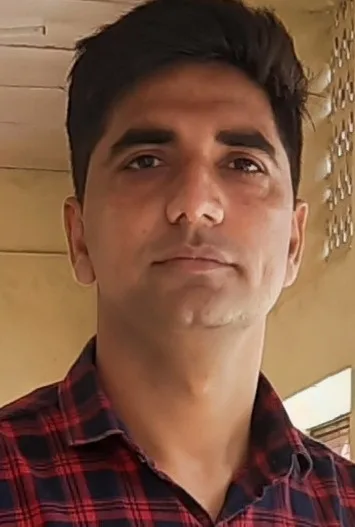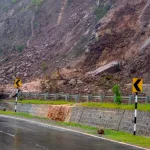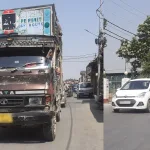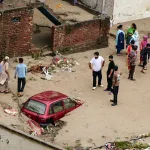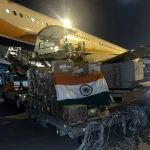When cities flood, hillsides collapse, or heat waves become deadly, we refer to these as “natural disasters”. For a long time, people saw such events as acts of fate or nature’s anger, beyond our control. But if we look at them through a sociological lens, this view changes. Rainfall, cyclones, and earthquakes are natural phenomena, but the damage they cause is not solely a result of nature. Disasters happen when natural hazards meet human decisions, weaknesses, and power structures. What we call “natural” is often shaped and made worse by society.
The recent cloudburst in Chausti village during the Paddar Machail Yatra in Kishtwar district shows this clearly. Cloudbursts often happen in the fragile Himalayas, but this one became a disaster because of human choices. To better understand the chain of decisions that amplified the harm, we can break down the timeline of events. Permits were granted for the Yatra without comprehensive risk assessments, neglecting the area’s environmental fragility. Thousands of pilgrims arrived, yet the area was ill-equipped with insufficient infrastructure.
During the event, early warnings of potential cloudbursts were either missed or ignored, and the rescue teams struggled with poor planning and tough terrain. This lack of preparedness resulted in significant suffering for villagers and pilgrims with few resources. What could have been a serious but manageable event became a social disaster. It highlighted the consequences of ignoring weak ecosystems, religious tourism, and the neglect that makes places like Jammu and Kashmir more vulnerable.
In contemporary societies, interventions in nature are inevitable. Building cities, dams, power plants, and highways is necessary for survival. These projects are not always bad, but problems start when we ignore the experts in the related field. As Ulrich Beck said, modern life creates a “risk society,” where progress also brings new risks. For example, building homes in floodplains or industries in sensitive areas may help in the short term but cause problems later. Our society needs to make changes, but these should be guided by experts, not just by politics or profit.
This is where the politics of knowledge becomes crucial. Engineers, doctors, environmental scientists, sociologists, and planners possess the specialized knowledge necessary to anticipate risks and suggest safeguards. Yet, their input is often overlooked in decision-making processes.
In our society, environmental impact assessments are frequently treated as mere formalities, rushed through to benefit politically favoured projects. Experts are often hired on shaky, temporary contracts, restricting their ability to confront established interests. Their warnings can be overshadowed by political pressures, resulting in decisions that disregard sound knowledge. Consequently, interventions align more closely with political agendas than with genuine expertise, leaving societies ill-prepared when disasters strike.
Neglecting experts not only sets the stage for floods and landslides, it magnifies critical challenges in health, climate, and infrastructure. Ignoring input from medical professionals during the early days of the COVID-19 pandemic worsened the situation, leading to the preventable loss of lives.
Disregarding climate scientists has hastened global warming, resulting in deadly heat waves and unpredictable monsoon patterns. When engineers and urban planners are sidelined, it has resulted in structural failures such as collapsing bridges and unsafe housing. In every domain, the dismissal of expert advice culminates in new forms of disasters, be they biological, technological, or ecological.
Disasters also underscore the inequalities embedded in our social structures. They do not impact all groups equally. Floods in cities rarely affect residents of gated communities, yet they devastate slum dwellers living along the rivers and city drainages. Heat waves may be uncomfortable for the wealthy, but they can be life-threatening for daily wage workers and the elderly poor.
Relief and recovery efforts are similarly influenced by inequality; those in power typically receive quicker and more comprehensive assistance, while marginalised communities are often left in uncertainty. By labelling these events as “natural”, we risk obscuring these injustices. A sociological perspective reveals that disasters intensify existing hierarchies of class, caste, gender, and region, transforming hazards into crises for some while being minor inconveniences for others.
Consider the story of a street vendor from a slum near the city’s drainage system. During a recent flood, the rising waters swallowed his entire stock, leaving him without his only source of income. While the affluent few managed to stay dry in their well-protected homes, Raju and his family waded through waist-high water, waiting for any aid that never arrived. His struggle serves as a poignant reminder that for those like Raju, these so-called natural disasters are a harsh reality, not just a news headline.
Despite this, the public often remains unaware of the social construction of disasters. Media coverage tends to focus on rainfall records, unusual temperatures, or divine metaphors like “nature’s fury,” drawing attention away from human failings. When a building collapses, blame is placed on the rain rather than on corruption and ineffective regulations. When floods strike a city, the narrative shifts to cloudbursts instead of decades of neglected drainage systems. This perspective allows authorities to evade responsibility and portrays disasters as acts of fate rather than the result of human choices and systemic failures.
To shift this narrative, headlines could emphasize human accountability: “Neglected Drainage, Not Cloudbursts, Drowns City.” This approach not only highlights the issue of poor urban planning but also empowers readers to question future coverage, fostering a more critical understanding of disasters and their underlying causes.
Author is Assistant Professor of Sociology at Chandigarh University, Punjab. Feedback: [email protected])


